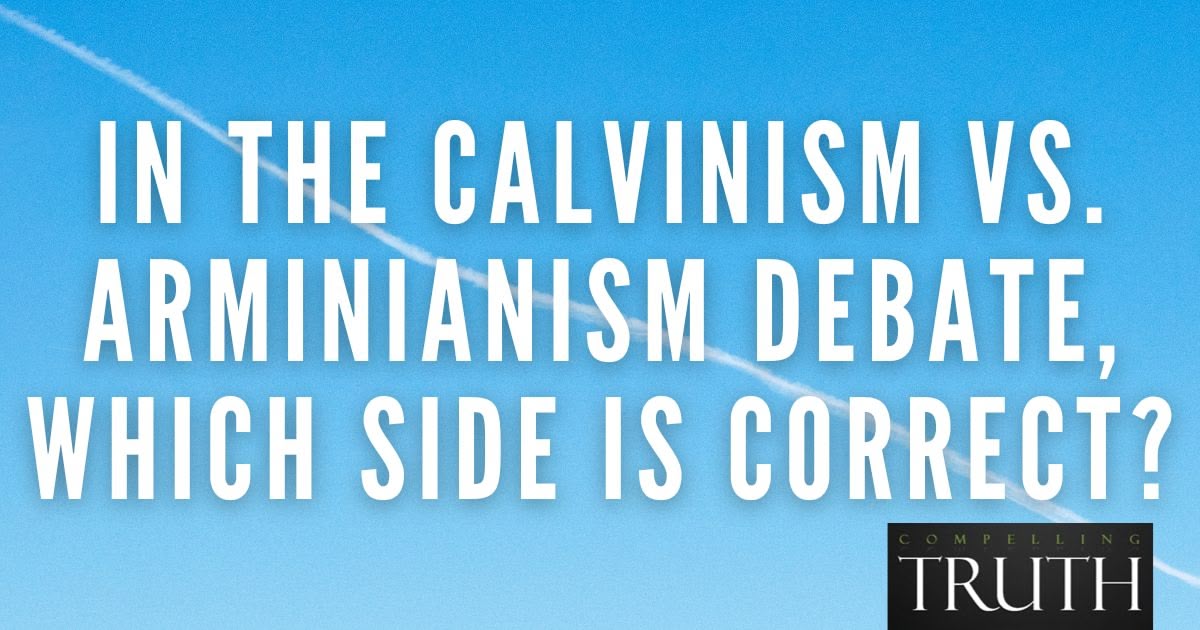"Prevenient" comes from the Latin phrase "to come before." "Prevenient grace" is the grace given by God that precedes a sinner exercising faith in Him. Any system of theology that affirms God's grace is necessary before conversion adheres to some form of prevenient grace. In the Calvinist system, irresistible grace is a type of prevenient grace. Common grace is a form of prevenient grace as well.
However, when used in theological discussions, the term "prevenient grace" refers more specifically to the Arminian system's answer to Calvinism's irresistible grace, and for that reason prevenient grace is also called "resistible grace" or "pre-regenerating grace." The general concept is that prevenient grace is a type of grace God bestows so that people can be freed from sin's bondage in such a way as to be enabled to accept the offer of salvation; but whether a person actually receives God's grace in a way that regenerates is up to the individual's choice.
Within Arminianism, there are generally three positions on prevenient grace.
First is classical Arminianism which teaches that sinners are in complete bondage to sin until the gospel is presented to them. Then, the Holy Spirit gets to work to teach (John 6:45) and convict (John 16:8) the sinner. The sinner at that time can come to a saving faith in Christ. The Holy Spirit is the One Who opens the heart (Acts 16:14) and mind (Luke 24:45) of the sinner, drawing the sinner to Christ (John 6:44; 12:32). The sinner can only act to have saving faith in Christ after the Holy Spirit does His work (1 Corinthians 2:14; Romans 8:7–8). Remember though, Arminians teach that the sinner, even after being presented with the gospel and having the Holy Spirit work to reveal God's goodness, still has the choice to make to accept it or not. Calvinists point to John 6:37 to refute this thinking: "All that the Father gives me will come to me, and whoever comes to me I will never cast out." Jesus was claiming, they say, that all those people drawn to God by God will accept Him.
The second Arminian position on prevenient grace holds that there is a lesser grace that is true for all people—that God draws all people to Him—and a greater grace for individuals that comes with the presentation of the gospel. The lesser grace covers all people and alleviates total depravity, leaving people only partially depraved such that people are now capable to hear and respond to the gospel (John 6:44; 8:43). The greater grace, then, completely frees individuals when they hear the gospel, God calls them internally, and they respond.
The third Arminian position on prevenient grace is that of Wesleyan-Arminianism. Here, adherents believe God's universal grace negates the depravity of all people, putting all people in a sort of neutrality toward God. Additionally, God draws all people (John 12:32) and convicts the "world" (as in John 16:8). This is unlimited atonement—the doctrine that holds that Jesus died for all people, whether they accept His sacrifice or not.
Arminians cite John 12:32 to support prevenient grace. There, Jesus says He will "draw all people" to Himself. Calvinists say the word "all" doesn't mean the entirety of the historic population of Earth, but to be inclusive of Gentiles as well as Jews. Jesus is being inclusive of non-Jews, all types of people, Calvinists say. They also point to John 16:8 and say that when Jesus says the Holy Spirit convicts the "world" He means those outside the Jewish community.
Calvinists also point to Philippians 1:6: "And I am sure of this, that he who began a good work in you will bring it to completion at the day of Jesus Christ." The concept of prevenient grace in Arminianism implies that God begins a work but may not complete it. Calvinists also point to 1 John 5:1: "Everyone who believes that Jesus is the Christ has been born of God." Calvinists see regeneration (being born again) as the cause for a person believing in Christ. John 1:13 affirms this comes from God and not from man, and John 3:3 says being born again is necessary in order to see the kingdom of God. Calvinists emphasize that natural humanity is dead in sin (Ephesians 2:1; Colossians 2:13) and cannot be made better or partially alive through something like prevenient grace, but instead needs to be given new life.
However, when used in theological discussions, the term "prevenient grace" refers more specifically to the Arminian system's answer to Calvinism's irresistible grace, and for that reason prevenient grace is also called "resistible grace" or "pre-regenerating grace." The general concept is that prevenient grace is a type of grace God bestows so that people can be freed from sin's bondage in such a way as to be enabled to accept the offer of salvation; but whether a person actually receives God's grace in a way that regenerates is up to the individual's choice.
Within Arminianism, there are generally three positions on prevenient grace.
First is classical Arminianism which teaches that sinners are in complete bondage to sin until the gospel is presented to them. Then, the Holy Spirit gets to work to teach (John 6:45) and convict (John 16:8) the sinner. The sinner at that time can come to a saving faith in Christ. The Holy Spirit is the One Who opens the heart (Acts 16:14) and mind (Luke 24:45) of the sinner, drawing the sinner to Christ (John 6:44; 12:32). The sinner can only act to have saving faith in Christ after the Holy Spirit does His work (1 Corinthians 2:14; Romans 8:7–8). Remember though, Arminians teach that the sinner, even after being presented with the gospel and having the Holy Spirit work to reveal God's goodness, still has the choice to make to accept it or not. Calvinists point to John 6:37 to refute this thinking: "All that the Father gives me will come to me, and whoever comes to me I will never cast out." Jesus was claiming, they say, that all those people drawn to God by God will accept Him.
The second Arminian position on prevenient grace holds that there is a lesser grace that is true for all people—that God draws all people to Him—and a greater grace for individuals that comes with the presentation of the gospel. The lesser grace covers all people and alleviates total depravity, leaving people only partially depraved such that people are now capable to hear and respond to the gospel (John 6:44; 8:43). The greater grace, then, completely frees individuals when they hear the gospel, God calls them internally, and they respond.
The third Arminian position on prevenient grace is that of Wesleyan-Arminianism. Here, adherents believe God's universal grace negates the depravity of all people, putting all people in a sort of neutrality toward God. Additionally, God draws all people (John 12:32) and convicts the "world" (as in John 16:8). This is unlimited atonement—the doctrine that holds that Jesus died for all people, whether they accept His sacrifice or not.
Arminians cite John 12:32 to support prevenient grace. There, Jesus says He will "draw all people" to Himself. Calvinists say the word "all" doesn't mean the entirety of the historic population of Earth, but to be inclusive of Gentiles as well as Jews. Jesus is being inclusive of non-Jews, all types of people, Calvinists say. They also point to John 16:8 and say that when Jesus says the Holy Spirit convicts the "world" He means those outside the Jewish community.
Calvinists also point to Philippians 1:6: "And I am sure of this, that he who began a good work in you will bring it to completion at the day of Jesus Christ." The concept of prevenient grace in Arminianism implies that God begins a work but may not complete it. Calvinists also point to 1 John 5:1: "Everyone who believes that Jesus is the Christ has been born of God." Calvinists see regeneration (being born again) as the cause for a person believing in Christ. John 1:13 affirms this comes from God and not from man, and John 3:3 says being born again is necessary in order to see the kingdom of God. Calvinists emphasize that natural humanity is dead in sin (Ephesians 2:1; Colossians 2:13) and cannot be made better or partially alive through something like prevenient grace, but instead needs to be given new life.



